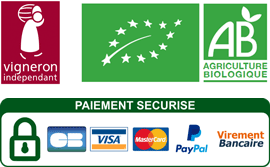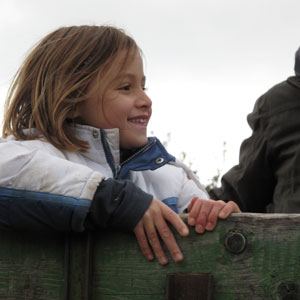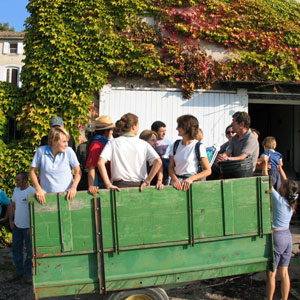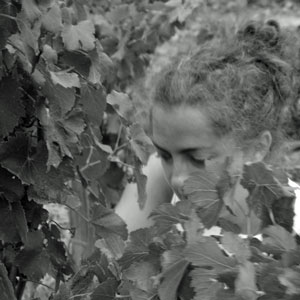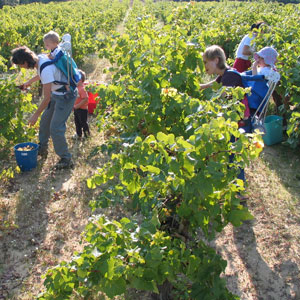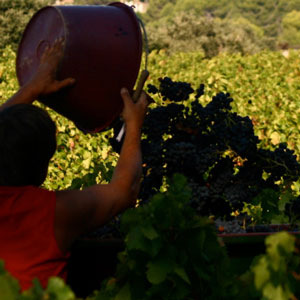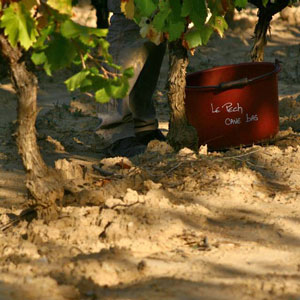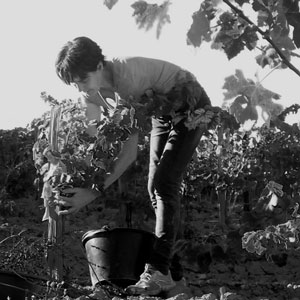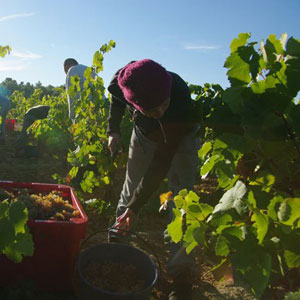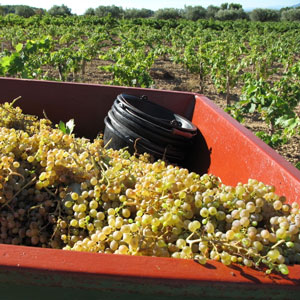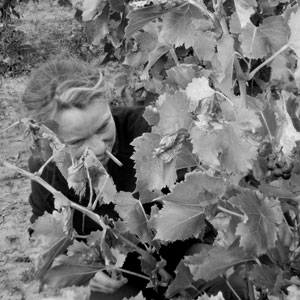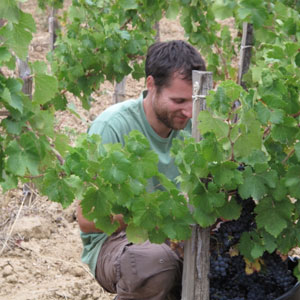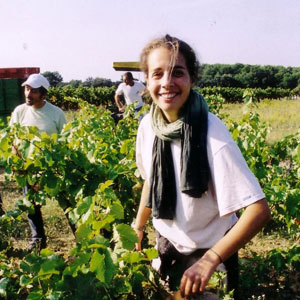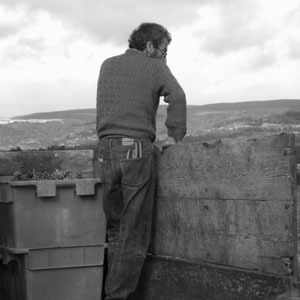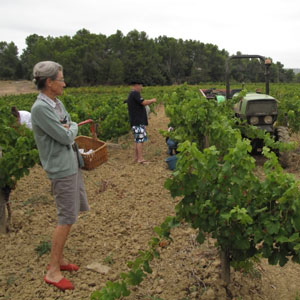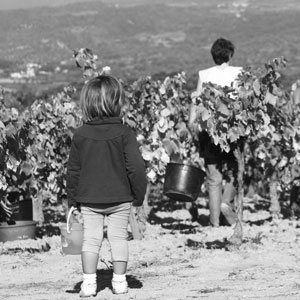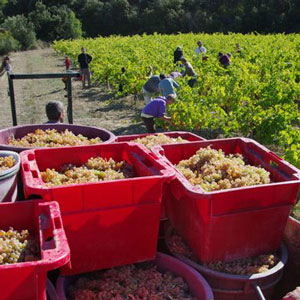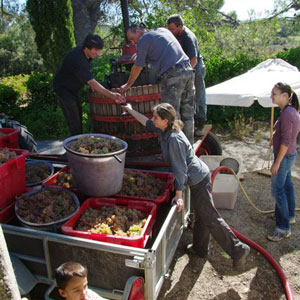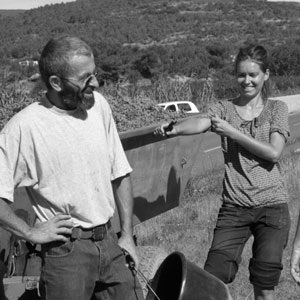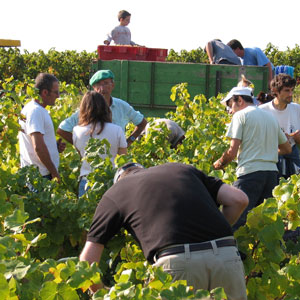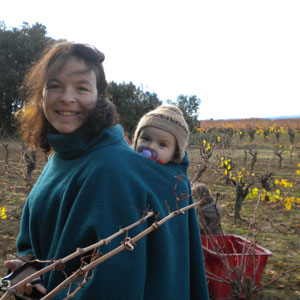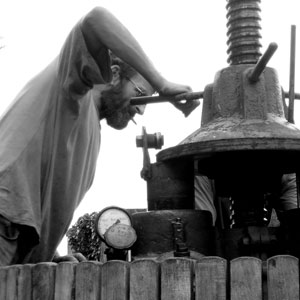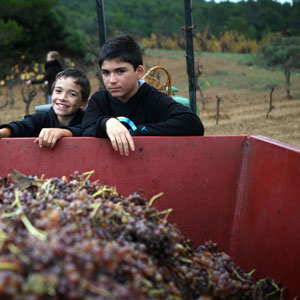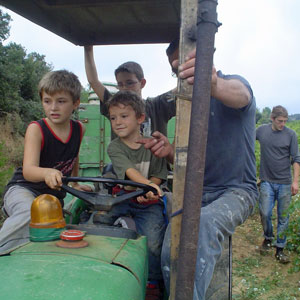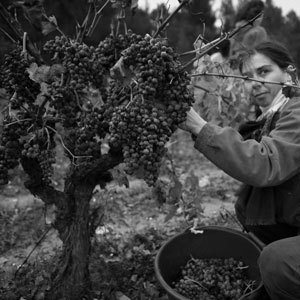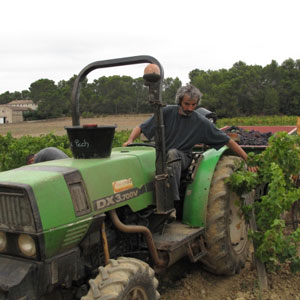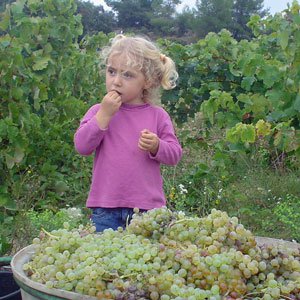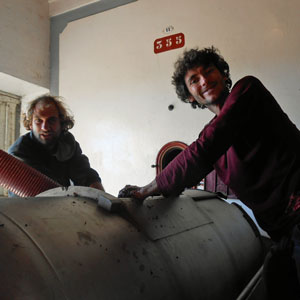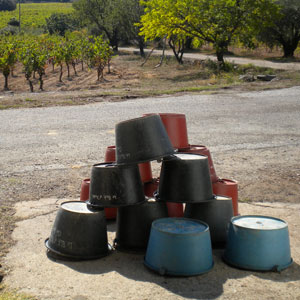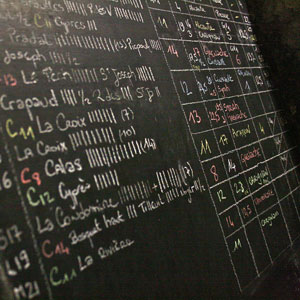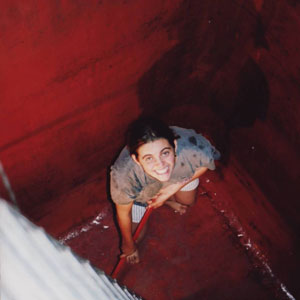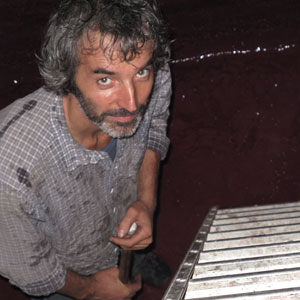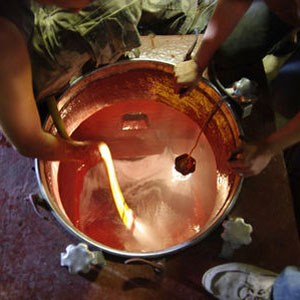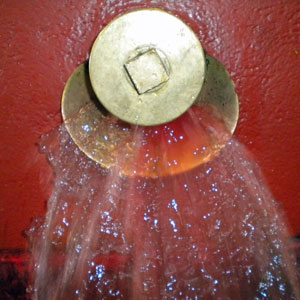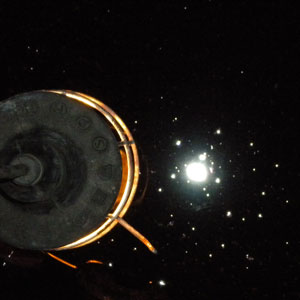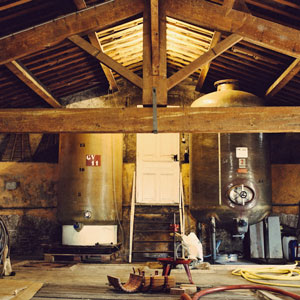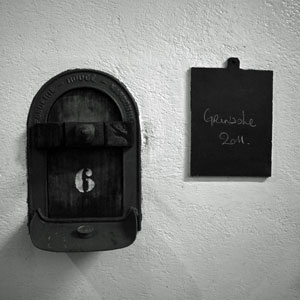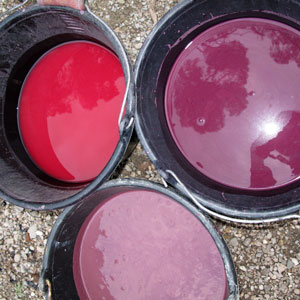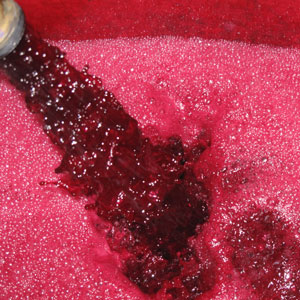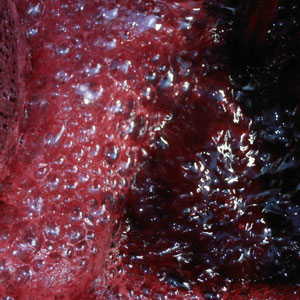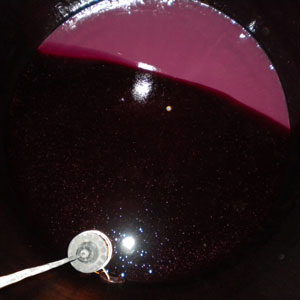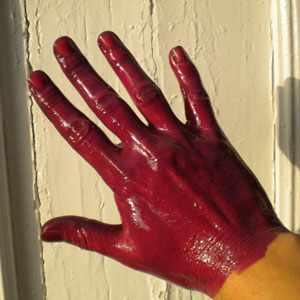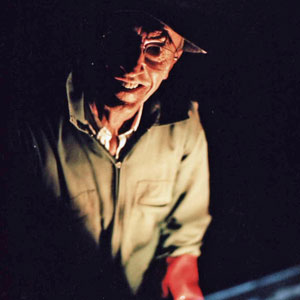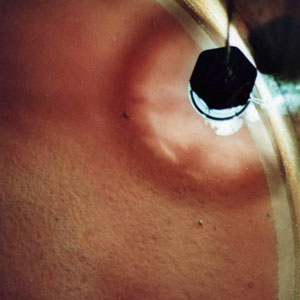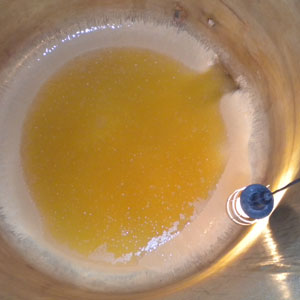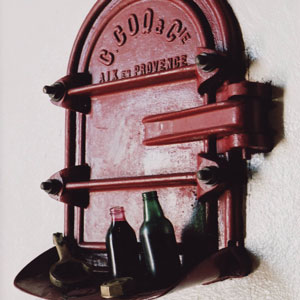
Harvest
The harvest is usually early at Le Pech d'André. It starts with grape juice… and ends with late harvest made at the end of November.
We are not looking for extra-maturity, we are picking at maturity, by hand or with our small harvesting machine.
Trucks are quickly taken to the cellar. At the receiving dock, clusters fall into the stemmer and are pumped directly into the cement vats.
Please have a look at this video to feel the spirit of the harvest at Le Pech d'André... :
Traditional winemaking
Depending on the vintage, we produce grape varieties separately or we blend them in the vats according to their taste quality and maturity. This early blending brings better alignment and adds aromatic complexity.
During the alcoholic fermentation, temperatures are controlled. In red wines, maceration times depend on the variety, years and types of desired vintages, from 8 to 34 days.
For rosé wine, we proceed by bleeding. Grapes are put into vats, their own weight will release the juice that will stay some time in contact with skins, which gives its color to the rosé. After having extracted the first juice from the vat, it is cooled to 4°C and left to decant for 1 to 2 days. This settling technique allows us to separate the clear juice from the rest. The juice then begins the fermentation process at low temperatures.
White wine is obtained by direct pressing with a pneumatic wine-press which gently extracts juices. These will then be decanted, and the fermentation is made at low temperature as well.
Wine aging
White and rosé wines as well as fruity reds are bottled in the spring following the harvest.
Aging of AOC/AOP Minervois red wines is done exclusively in cemented vats. These wines are generally bottled 16 months after harvest.
Only late harvest of red or white can stay for a while in barrels, preferably during the fermentation.

